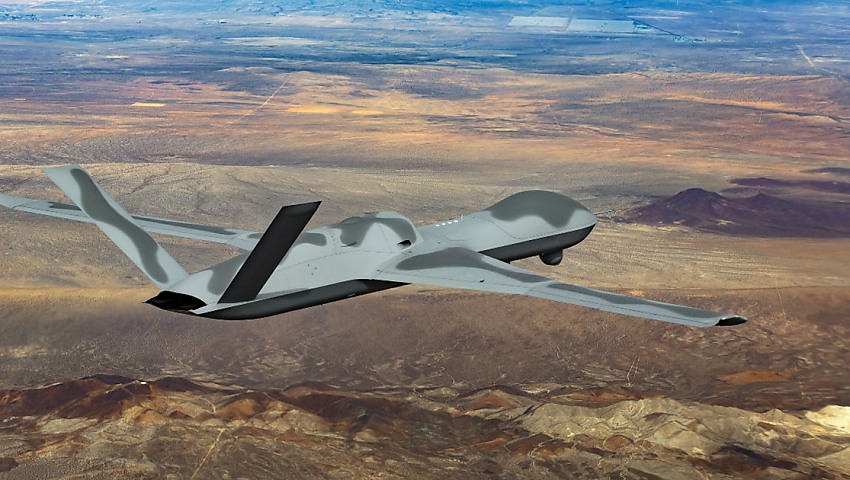General Atomics Aeronautical Systems has begun testing artificial intelligence pilots in live, tactical, and air combat manoeuvres on MQ-20 Avenger unmanned aircraft.
General Atomics conducted collaborative manoeuvres between human and AI pilots using low-Earth orbit (LEO) satellite communication on a collaborative combat aircraft, during testing on 6 April.
The mission beyond line of sight (BLOS) datalink is used to rapidly retrain and redeploy AI pilots within minutes while the aircraft is airborne.
Two RASOR multi-functional processors from L3Harris Technologies were used to house a transceiver card and control BLOS active electronically scanned array.
“The flight demonstrated GA-ASI’s unmatched ability to fly autonomy on real, tactically relevant, unmanned combat aerial vehicles,” said GA-ASI advanced programs senior director Michael Atwood.
“It displayed effective BLOS command and control through the collaboration between three defence primes.
“This showcases our rapidly maturing CCA mission system suite and moves us one step closer to providing this revolutionary capability to the warfighter.”
Operator commands were captured with hands on throttle-and-stick (HOTAS) controls and sent via LEO SATCOM to AI pilots running reinforcement learning algorithms.
AI pilots autonomously tracked and manoeuvred dynamically via HOTAS commands, while operators were provided updates from AI pilots on a cockpit heads-up display and could dynamically re-task via HOTAS as the mission evolved.






